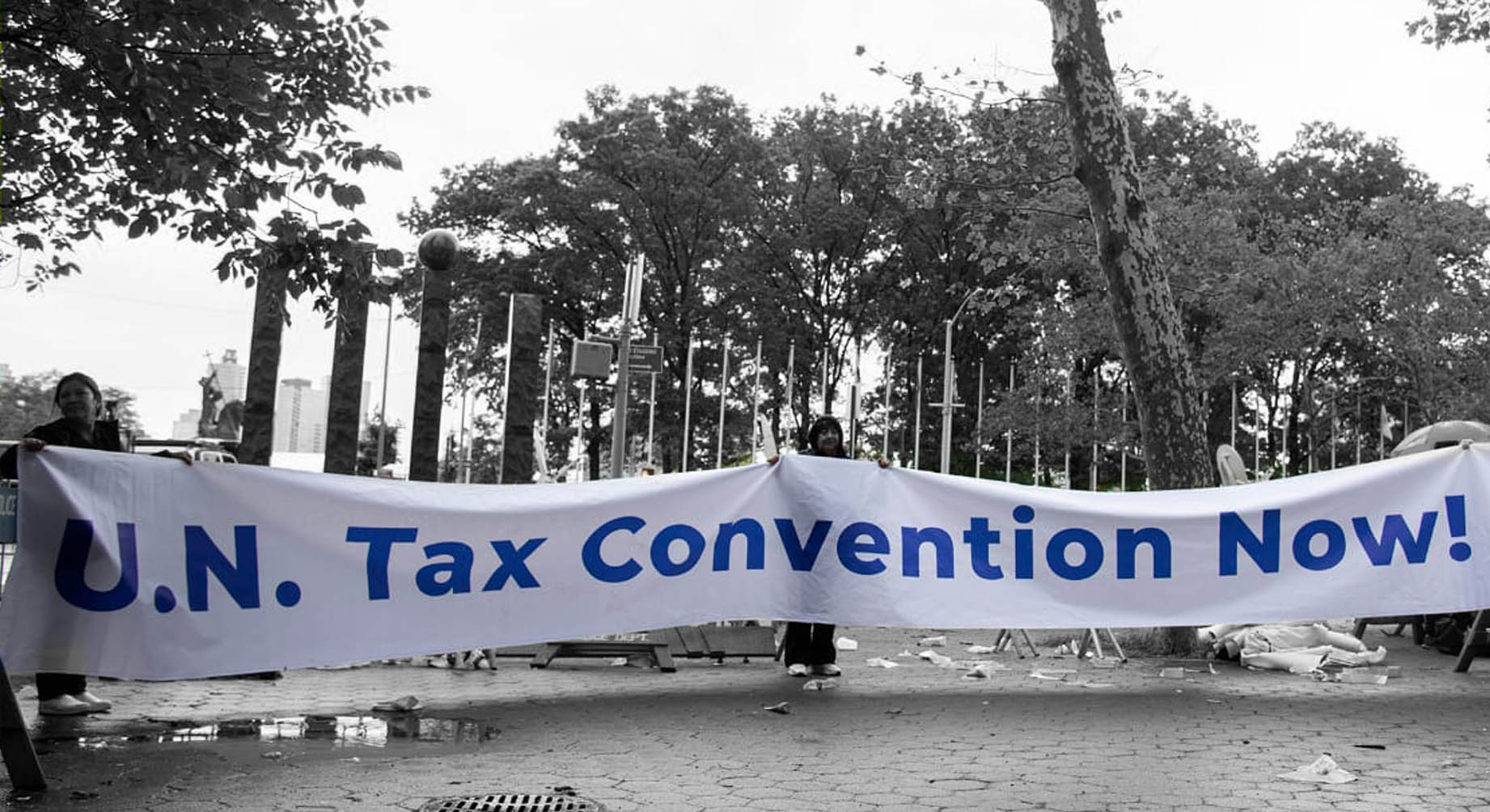

Civil Society Welcomes Progress Towards a UN Tax Convention
A Meaningful Step Forward for the Arab Region, with More Still to Achieve - Hassan Sherry
In a significant move for global tax cooperation, civil society organizations (CSOs) have welcomed the adoption of the Terms of Reference (ToRs) for a UN Tax Convention. This vote marks a historic opportunity to advance international tax cooperation in an inclusive and sustainable manner. Despite some areas of concern, many organizations are optimistic about the potential for reform, especially in securing fair taxation and upholding human rights.
Despite the absence of a call for progressivity in tax systems—something many CSOs and global advocacy groups had advocated for in their earlier submissions—the newly adopted ToRs incorporate key elements from various submissions by CSOs, particularly commitments related to the fair allocation of taxing rights, the inclusion of human rights principles, and the effective taxation of high-net-worth individuals. Notably, the ToRs address taxation challenges arising from the globalized digital economy and acknowledge the varying capacities of countries, especially developing countries. These provisions are seen as a significant win for those advocating for a more equitable international tax system.
Yet, the debate surrounding human rights language continues to raise questions. The text references "international human rights law" rather than the "UN human rights law." Some fear that this broader terminology could allow for interpretations—particularly by the Organisation for Economic Co-operation and Development (OECD)—that emphasize privacy over transparency. Despite these concerns, CSOs are mobilizing for a global dialogue to proactively address these challenges.
Negotiations remain ongoing in other areas, especially regarding tax-related commitments and protocols. Progress has been made on integrating the environmental dimension of sustainable development, with language that emphasizes economic, social, and environmental sustainability now incorporated into the text. However, the principle of national sovereignty remains a contentious point. Critics argue that the current language, which lacks a clear 'do no harm' provision, risks prioritizing sovereignty without adequately considering its potential negative impacts on other nations, thereby straying from a more balanced approach to sovereignty and social and environmental responsibility. Despite this, CSOs are preparing to work within the framework of the adopted text.
In the Arab region, as in the rest of the Global South, there is a vested interest in establishing a coherent, fair, and effective global tax system that addresses tax havens while promoting development and environmental protection. In this context, CSOs, advocacy groups, and other stakeholders in the region also welcome the adoption of the Terms of Reference for a UN Tax Convention and strongly support the pursuit of an ambitious, fair, and impactful global agreement.
The Arab Context: Key Features and Challenges of Prevailing Tax Systems
Developing countries face a substantial financing gap to achieve the Sustainable Development Goals (SDGs). The annual shortfall is estimated at $4 to $4.3 trillion, according to UNCTAD's 2023 SDG Investment Trends Monitor. Domestic resource mobilization, particularly through tax revenues, is widely regarded as the most sustainable means for governments to finance social and economic development, assuming it is managed effectively. However, in the Arab region, the current tax systems reveal serious shortcomings that impede their capacity to support these development goals, particularly when analyzed through a rights-based lens. Below are four prominent features of tax systems in the region.
1. Decoupling of Taxation from Developmental Planning
Unlike in many countries where taxation is integrated into broader developmental strategies aimed at achieving structural transformation, poverty reduction, and climate change mitigation, taxation in the Arab region is often treated as an isolated objective. Many governments tend to focus on collecting easy-to-access revenues, rather than using taxation as a tool for driving long-term socio-economic development.
2. Reliance on Indirect vs. Direct Taxes
In the Arab region, the share of tax revenues generated from indirect taxes, such as Value-Added Tax (VAT), is disproportionately high, while revenues from direct taxes are extremely low by global standards. However, the over-reliance on indirect taxes can have regressive effects, particularly exacerbating poverty and inequality by disproportionately burdening lower-income individuals, especially women, who are often responsible for the majority of household spending on essential goods. Meanwhile, direct taxes remain low due to generous exemptions and low corporate tax rates. Although such policies could theoretically promote reinvestment in productive economic activities, they are often undermined by the organic, deeply intertwined relationship between political elites and businesses. This connection leads to preferential tax treatment and perpetuates tax injustice. For example, investors in public maritime property in Lebanon pay zero taxes.
3. Quasi-Exemption of Wealth Taxes
Wealth taxes are minimal or nearly non-existent in much of the region. In Jordan and Palestine, for example, non-wage income, such as capital gains and dividends, is untaxed, disproportionately benefiting the wealthy. Similarly, property taxes are trivial, with Egypt collecting just 0.2% of GDP from property taxes in 2014 and Jordan collecting 0.47% in 2012. Untapped wealth taxes present considerable potential for raising revenue, especially given the concentration of wealth in real estate across the region.
4. Tax abuse
Tax abuse, including evasion, avoidance, and the transfer of wealth to tax havens, costs the region substantial revenue. A 2022 report by the UN Economic and Social Commission for Western Asia (ESCWA) highlights that the region suffers significant revenue losses due to various factors. Corporate tax abuse alone results in an estimated $8.9 billion in lost public revenues. Additionally, tax competition has cost the region over $50 billion in tax revenues between 1980 and 2020 as countries have reduced corporate income tax rates to compete globally. According to the report, the Arab region could have generated an additional $2.3 billion in corporate tax revenues in 2019 if it had applied a global minimum corporate tax rate of 15% to all undertaxed multinational corporations (MNCs). Globally, $7.6 trillion in private wealth remains hidden in tax havens, and in the Arab region, the wealthiest 10% control 81% of the region’s net wealth.
Overcoming Internal and External Barriers to Tax Justice
The challenges facing tax systems and domestic resource mobilization in the Arab region are rooted in both internal and external factors. Internally, these challenges reflect the region's political economies and socio-economic institutions, which are shaped by existing power dynamics. Externally, they are a consequence of structural adjustment programs (SAPs) promoted by international financial institutions, operating within the current global financial architecture. Nevertheless, a global UN Tax Convention has the potential to alleviate many of these constraints, fostering a fairer tax regime both globally and domestically.
While challenges remain, the adoption of the ToRs for a UN Tax Convention is a crucial step forward. CSOs remain optimistic that this process will lead to a fairer global tax system, in which MNCs and the super-rich contribute their fair share, thereby benefiting countries of all sizes and stages of development. Although the road ahead is likely to be complex, the progress achieved thus far offers hope for meaningful reform and a more equitable future.
Hassan Sherry
Recent publications

